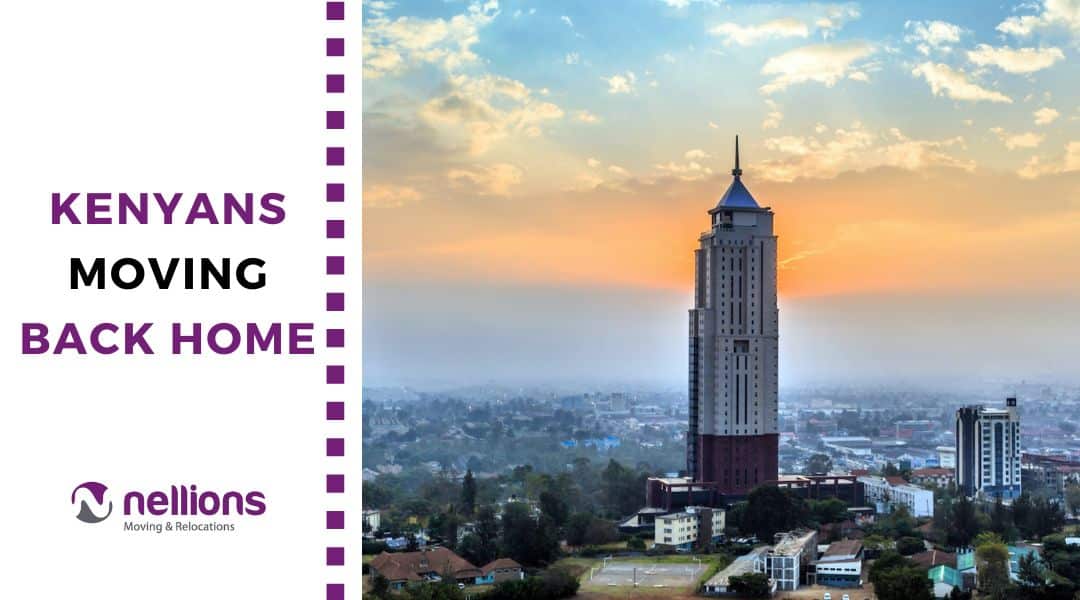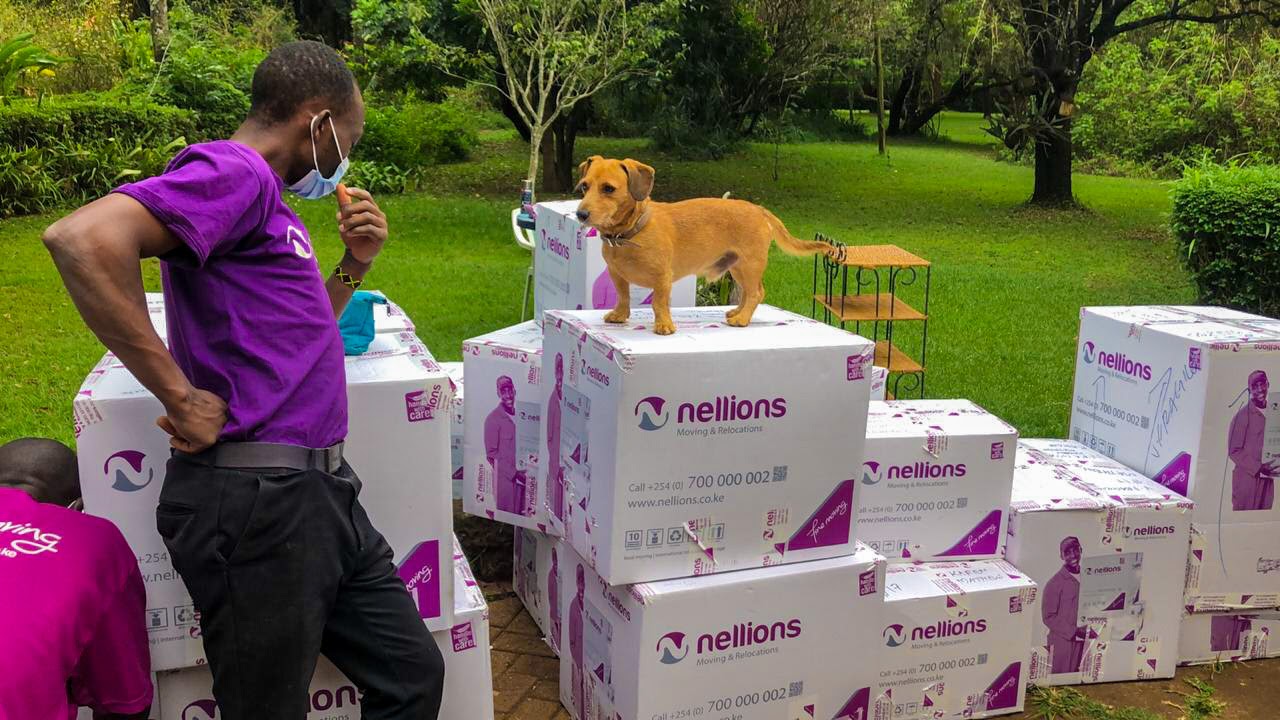Last updated on November 14th, 2023 at 02:21 pm
Let’s begin with a few guesses:
- You moved abroad ‘majuu’ several decades back in search of greener pastures.
- You’ve lived in the USA, UK, Europe, Australasia, etc for those many years, and are now ready to move back home.
- You own very good furniture, personal effects, and many sentimental items that you acquired in your adventures abroad.
- Parting with your goods is out of the question because they hold cherished memories and are of superior quality that may not be available in Kenya.
- Through your research, you understand that you can import your household goods to Kenya tax-free.
Does the above description fit you?
In our day-to-day moving business, we often hear of horrific scenarios where a Kenyan moving back home after a long residence abroad tries to relocate with their personal goods with disastrous consequences.
A lot of time, because of failing to understand the process, they find themselves subjected to hefty fines, and sometimes even partial loss of their consignment.
To help you, our discerning, globe-trotting reader make your relocation back to Kenya hiccup-free, we’ve put together some advice on 10 things you ought to know when relocating back home.
1. This Is An International Move
While you are indeed “going back home”, your move is technically treated as an international move.
Like all international affairs, there are documents and processes anchored in law that need to be done right in order to process your move. Ensure that all the necessary paperwork for your move is in order.
Remember, the shipping line, the customs officers, port authorities, tax authorities, etc do not know you are coming home to Kenya. All they see is another international consignment entering Kenya and needs to be treated as such.
2. Tax Waiver Is Not Automatic
There are preset conditions that have to be met before your consignment can be let in duty-free even if you are moving back home to Kenya. The most crucial include:
- You must have lived outside Kenya for at least 2 years and spent less than 90 days in Kenya during that period.
- After returning to Kenya, you should have your goods dispatched from your origin country within 90 days of your arrival date. If this is not possible, you have to apply for an extension to 365 days which may be approved or rejected depending on prevailing circumstances.
- Your goods must be pre-owned for at least 6 months. New items attract taxes (customs duty, VAT, inspection fees, etc) at a rate of about 55% of their value.
- Kenyan customs (KRA) will need a copy of your work permit or proof of your foreign residence.
- You must enter Kenya ahead of the goods. Upon entry, you must present your original passport to the customs verification officer.
- For you to import your used vehicle to Kenya, it must be pre-owned for at least 1 year. Furthermore, it must be less than 8 years old and will be subject to pre-shipment inspection.
- Use your Kenyan passport to enter Kenya if you hold dual citizenship. Furthermore, it is crucial that your dual citizenship is officially recognized by the Government of Kenya. Owning two valid passports from separate countries doesn’t immediately translate into dual citizenship.
If you are unable to meet the above conditions you will be required to pay taxes plus penalties which will be about 55% of the value of the goods. Are you ready for this?
3. Begin With The End In Mind
The golden rule for all international relocations is to begin with the end in mind.
Because things mostly go wrong in the destination country. Moving FROM one country is always easier than moving INTO another country.
Kenyan authorities are primarily concerned with shipments whose owners seek tax exemptions.
Proper documentation is important to help you qualify for tax exemption. This needs to be handled when packing at the origin country, otherwise, you may have a nasty surprise awaiting you from Customs at the Port of Mombasa or Nairobi ICD in the form of demurrages, port storage fees, penalties, and taxes.
You also need advance planning of where your valuables will be taken:
- Is the house/space adequate or ideal?
- Given the country you are leaving, are all the items you want to bring really compatible with your new situation in Kenya or will they bring about new challenges?
- For large items, are the doorways and passageways big enough to fit them?
It is quite common for people to find their new home in Kenya not ready upon their arrival, or they haven’t found the kind of house in which they want to live. In such a situation, you will need temporary storage, also known as Storage In Transit (S.I.T).
Do you need temporary storage in Kenya? Perhaps your house is not ready or you have not found the kind of house you want to live in. There are a few good companies offering storage services like Nellions moving & Relocations. Obtain their rates ahead of the container arrival, visit their storage facilities and obtain their online reviews. Get to know their post-storage charges in advance. Don’t commit without doing proper due diligence
One last thing: your belongings should be wrapped and packed securely prior to stowing them in the container. Ensure that each item is recorded in the Packing List.
During verification by Kenyan customs authorities, your goods will be offloaded from the container at the port, and verification conducted in accordance with your Packing List.
If your items are poorly packed, you risk having many breakages, scratches, and damages to your goods before they reach your new home.
4. Engage Excellent Moving Professionals
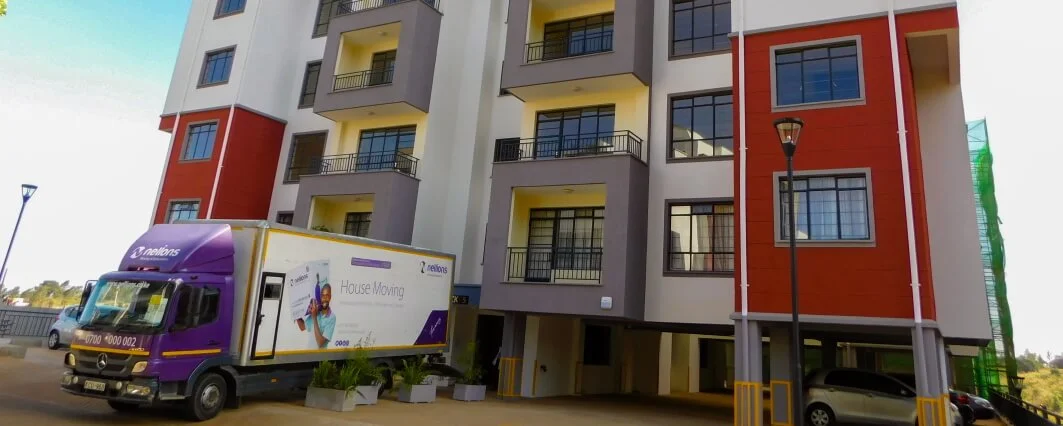
The biggest determinant of the success of your relocation back to Kenya is the quality of the moving professionals that you engage.
Your international movers should be knowledgeable in and inform you of customs processes for both the origin country and Kenya, Kenyan importation laws, applicable tax, and what to expect during the entire relocation process.
They should also maintain good relationships with valuable service providers such as shipping companies, clearing agents, and even your moving company at the origin country.
It is important to get in touch with your destination mover in Kenya before beginning the move so they can inform you of the customs requirements in Kenya, and appropriate documentation. They will also need to liaise with your shipping company and clearing agent for a smooth transition of your consignment.
5. Things Work in Kenya
Having gotten used to the efficiencies of more developed countries, you may quickly get frustrated with how different things run in Kenya compared to the country in which you were living.
The clearing process may be slow, tax officials may look unfriendly (you may interface with them during verification), or you may encounter system downtimes that cause additional delays.
It is tempting to rant, “If this was XYZ country, then…” but it doesn’t work as well as exercising some good-old patience.
If you engaged a reputable destination mover in Kenya, then your relocation is in safe hands. To them, Kenya is just Kenya – systems are imperfect, too much energy is often deployed on minute details, and certain aspects of the customs process seem opaque.
But your consignment will still arrive home safe and sound.
6. You Need To Update Your Tax Position

If you left Kenya with tax arrears or you own properties from which you earn income but don’t pay taxes, KRA’s Domestic Taxes department will demand their pound of flesh as soon as your tax waiver application is lodged.
Tax arrears also accrue penalties.
You, therefore, need to be in good books with KRA ahead of the arrival of your goods.
You can always check your tax status with KRA online.
7. Marine Insurance Is Mandatory
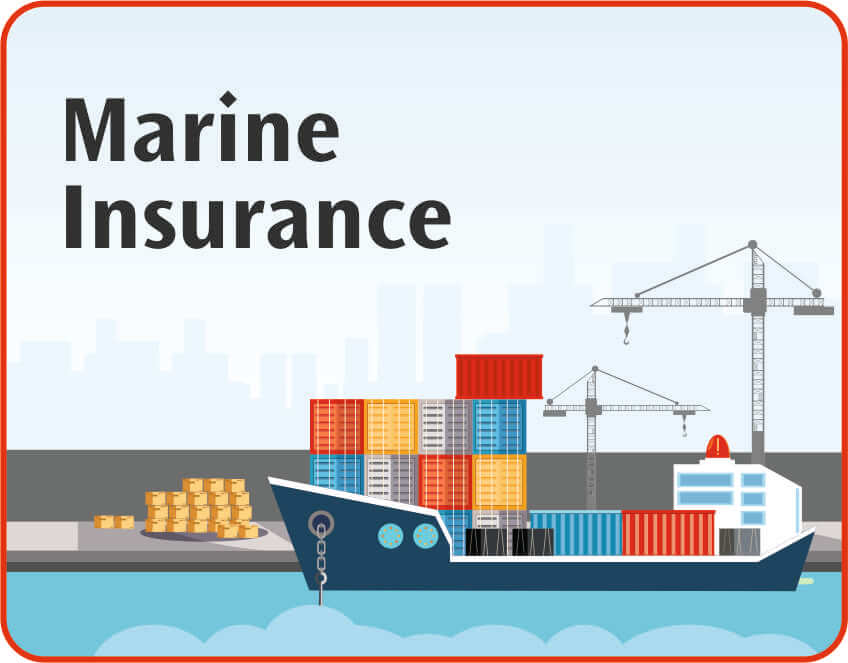
Since 2019, all importers into Kenya must procure marine insurance with companies registered in Kenya.
Even if you insure the goods with a company based at your origin country you will be forced to procure another insurance cover in Kenya or pay a penalty.
Ask your Kenyan moving company/agent to obtain insurance rates for you prior to shipping your goods out of your current country.
8. Railway Development Levy Is Mandatory For Returning Kenyans
A tax called the Railway Development Levy (of 1.5% of the value of your goods) on used household goods was introduced in 2012 for all non-diplomatic imports into Kenya.
Kenyans working in foreign countries as diplomats are not exempt from this tax unless they obtain a special waiver.
9. While You Were Away…
Many things changed when you were out of Kenya – most of them good.
Here are a few areas regarding the moving and relocation industry that have improved significantly that may affect your move back to Kenya:
- In 2021 KRA commissioned the Integrated Customs Management Systems (ICMS) which enables import entries to be lodged online with all the attachments. The entry will be lodged in your (owner of the goods) name using your KRA PIN and email address. The system will always update you via email on all the steps made up to the end. Your agent can therefore not tell you lies.
- Through the above-mentioned iCMS, most customs processes in Kenya are automated. Therefore, it is nearly impossible to know the name of the customs officer approving your import entry. If you encounter any challenges with your shipment and think of using “someone I know at KRA”, they may not be able to help you despite their best efforts. However, they may also not tell you this.
- Similar to other tax authorities abroad such as USA, UK, and South Africa, KRA has gotten very ruthless in its tax collection measures. Their modus operandi is that tax is always payable, and it is the payer’s duty to prove beyond a reasonable doubt that they should be exempted.
- Kenya adopted the IPPC pest control rule called ISPM15 meaning that if you have any wooden-crated items the timber used will have to be wooden treated
- Contrary to popular belief, you won’t have to part with kitu kidogo in order to have your consignment to Kenya cleared smoothly. As long as your paperwork is in order, your goods will arrive in your possession without having to bribe anyone.
- Road infrastructure has significantly improved in the last 20 years, making traveling to most parts of Kenya much easier. In Nairobi, the biggest innovation in recent years is the Nairobi Expressway, a tolled road that cuts traveling time from the Jomo Kenyatta International Airport (JKIA) to Westlands to only 15 minutes.
10. Nellions Is The Best International Moving Company In Kenya
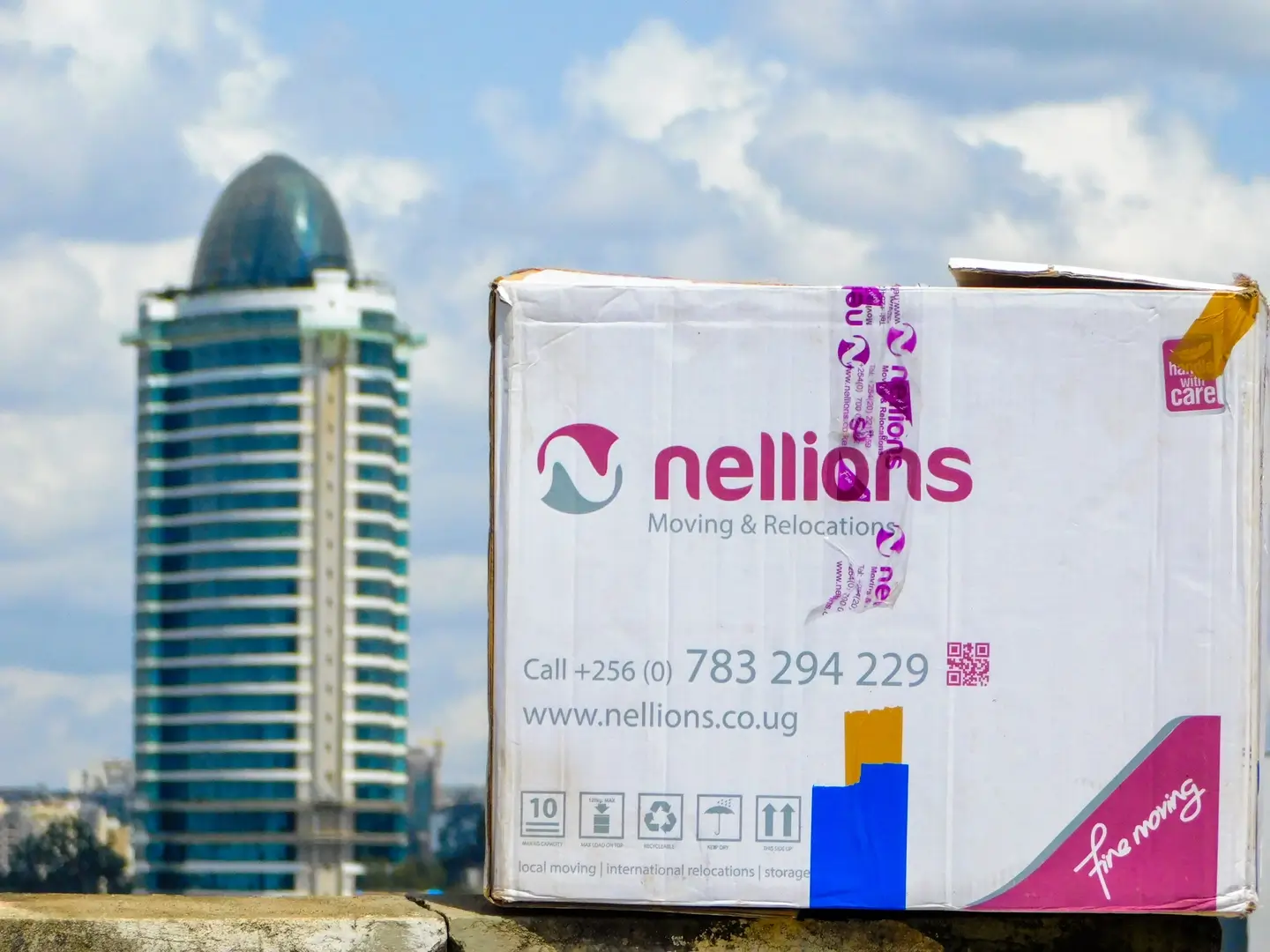
The moving industry changed. You were probably used to getting a truck at a place called Kaka if you wanted to move houses back in the day.
Today, Nairobi alone has so many moving companies that some are now estate-based.
The proliferation of movers in Kenya comes with multiple concerns. Many Kenyan movers still operate in a jua kali manner – without any offices, identifiable brand, or professional accountability.
At Nellions Moving & Relocations, we pride ourselves to be the only Kenyan moving company that benchmarks with international standards in terms of staff training and service delivery.
We are members of the International Association of Movers (IAM) and the British Association of Removers (BAR), Kenya National Chamber of Commerce & Industry, and also run our own one-of-a-kind Mover Training Academy.
We know that our job is not to move things but to people, with their valuable possessions & memories.
Mainly through word-of-mouth recommendations, every year Nellions Moving and Relocations company helps dozens of Kenyan families move back to Kenya with their used household goods seamlessly.
All of our clients have good things to say about us.
We know the process; we care and would like each one’s experience to be positively memorable.
You deserve a good welcome home and not a nightmare experience. Welcome to Kenya, and welcome back home.




